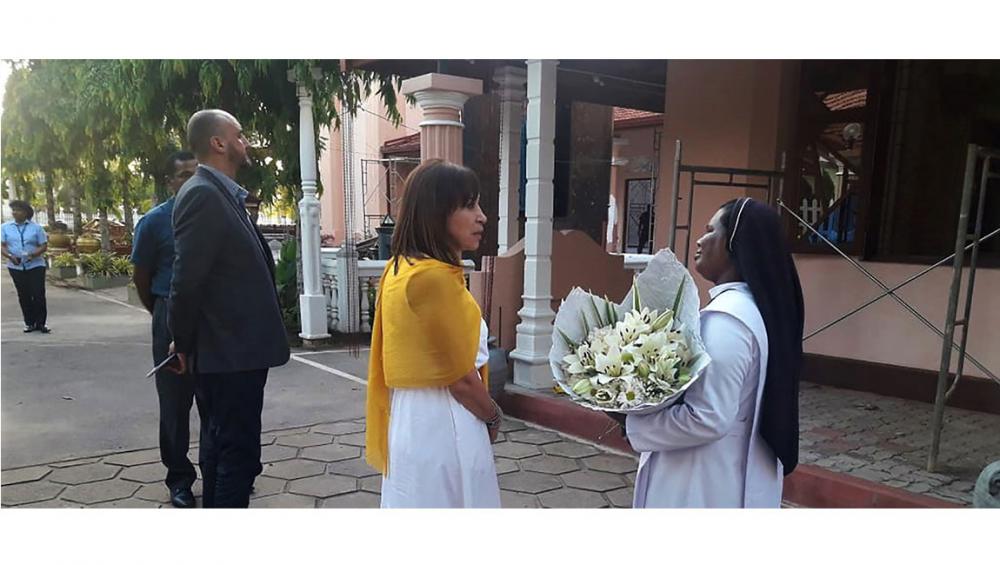Just Earth News | @justearthnews | 01 Jun 2019, 05:08 pm Print

New York, June 1 (JEN): Since the suicide bombings in Sri Lanka on April 21, there have been concerns for the safety of refugees and asylum seekers living in the country: in the immediate aftermath, there were reports of refugees being targeted and forced from their homes by angry mobs threatening reprisals for the Easter Sunday attacks which targeted Christian churches, as well as upscale hotels.
More than a month on from the bombings, some 1,000 refugees and asylum seekers, mainly Muslims from Pakistan and Afghanistan, are sheltering in police stations and mosques near the capital Colombo, in the towns of Pasyala and Negombo; the site of one of the church attacks.
The UN Refugee Agency, UNHCR, is working closely with the Sri Lankan authorities to find more suitable places for the families to live, in dignity and safety but, in the current climate of fear, this has not been easy.
“Our top priority is to make sure these people are safe and well-protected, and to ensure they can access basic services,” said UNHCR’s head of office in Sri Lanka, Menique Amarasinghe. “We’ve been extremely grateful to the Sri Lankan government, who have acknowledged their responsibility to care for these people, and have been doing everything they can, in really very difficult circumstances.”
Conditions are cramped, and several of the pregnant women in the mosque have difficulty sleeping in the confined space. Those in the car park at Negombo’s police station have security and assistance, but facilities are inadequate, with just a handful of toilets shared by the police and new arrivals.
It is so hot, said UNHCR, that most people have broken out in skin rashes, with their arms and legs covered in infected mosquito bites.
Those taking shelter pointed out that many Sri Lankans were keen to help them, with members of the local community stepping in to try to protect them from angry mobs. “People have been generous. Some groups have come and provided us with food and clothes. Sri Lankan people have helped us,” said Anisa, an ethnic Hazara from Afghanistan, nursing her six-month-old daughter.
Anisa has lived in Sri Lanka for four years and says people were friendly, but the attacks changed everything. “The owner of our house told us we could stay, but the neighbours said no. He said he wouldn’t be able to protect us, so we came here, a safe place.”
- Viral Irish food bank photo sparks shocking racist attacks on Indians
- Caught on camera: Two foreigners assaulted in Israel in an alleged racial attack
- Pakistan: Parents heartbroken after court sides with man accused of kidnapping minor Christian girl
- Pakistan: Trafficked 35 years ago, Bangladesh-born woman approaches court against FIA for offloading her from flight!
- Hindu tea worker found bound and bloodied in Bangladesh garden during general elections; investigation underway





-1763561110.jpg)
